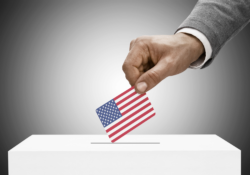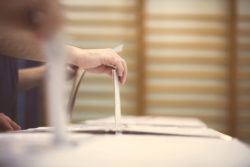Democracy and Institutions
Policy-making follows a complex institutional process. Policy makers are chosen through precise rules on elections or appointment. Each public policy decision is subject to an accurate process, and results from the interaction of different authorities (executive and legislative power, local and national governments, independent administrative organizations). This key role of institutions and politics motivates the investigation of the impact of these factors on public policy efficiency.
IPP focus. IPP researchers investigate the impact of electoral rules on public policy decisions. They also study the impact of factors related to elected incumbents’ career (past seats, multiple office-holding), and to the structure of independent administrative organizations (central banks, regulatory authorities). The IPP is also interested in explaining the heterogeneity of politicians’ view on key public policy issues. The IPP “Democracy and Institutions” team relies on various methods: predictions from theoretical models, ex-post empirical evaluations using electoral data, analysis of survey data on elected incumbents.
Programme Director : Pierre Boyer
Publications (17)
Note IPP n°108
Emotional Rhetoric and the Rise of Populism in the European ParliamentAuthors: Hugo Subtil, Vincent Verger
Note IPP n°104
On the design of self-financed Prime d’Activité reformsAuthors: Felix J. Bierbrauer, Pierre C. Boyer, Emanuel Hansen, Adrien Vallette
IPP Policy Brief n°80 - March 2022
Electoral Competition, Voter Bias, and Women in PoliticsAuthors: Thomas Le Barbanchon, Julien Sauvagnat
IPP Policy Brief n°78 - January 2022
Recounting France’s trade unionsAuthors: Cyprien Batut, Ulysse Lojkine, Paolo Santini
IPP Policy Brief n°74 - September 2021
Tax Reforms and Political FeasibilityAuthors: Felix Bierbrauer, Pierre C. Boyer, Andrew Lonsdale, Andreas Peichl
IPP Policy Briefs n°71 - June 2021
Merging regions: What effects will the French perceive?Authors: Lionel Wilner
IPP Policy Briefs n°69 - June 2021
Allocation of online appointments: A system to deter black-market profiteersAuthors: Jeanne Hagenbach, Dorothea Kübler
IPP Policy Brief n°60 - October 2020
Trapped by the Prisoner’s Dilemma, the United States Presidential Election Needs a Coordination DeviceAuthors: Héloïse Cloléry, Yukio Koriyama
IPP Policy Brief n°56 - July 2020
Should European integration go further? A survey of French, German and Italian members of national parliamentsAuthors: Pierre C. Boyer, Elie Gerschel, Anasuya Raj
IPP Policy Brief n°51 - March 2020
Gender discrimination and local electionsAuthors: Jean-Benoît Eyméoud, Paul Vertier
IPP Policy Brief n°50 - February 2020
Ground work vs. social media: how to best reach voters in French municipal elections?Authors: Vincent Pons, Vestal McIntyre
IPP Policy Brief n°40 - May 2019
Expressive voting and its costsAuthors: Vincent Pons, Clémence Tricaud, Vestal McIntyre
IPP Policy Brief n°39 - April 2019
The Territory of the gilets jaunesAuthors: Pierre C. Boyer, Thomas Delemotte, Germain Gauthier, Vincent Rollet, Benoît Schmutz
IPP Policy Brief n°38 - March 2019
Sexual division of labour in the French ParliamentAuthors: Quentin Lippmann
IPP Policy Brief n°22 - January 2016
The impact of the media on court decisionsAuthors: Aurélie Ouss, Arnaud Philippe
IPP Policy Brief n°7 - October 2013
Should the ban on multiple mandates also apply to Senators?Authors: Laurent Bach



















